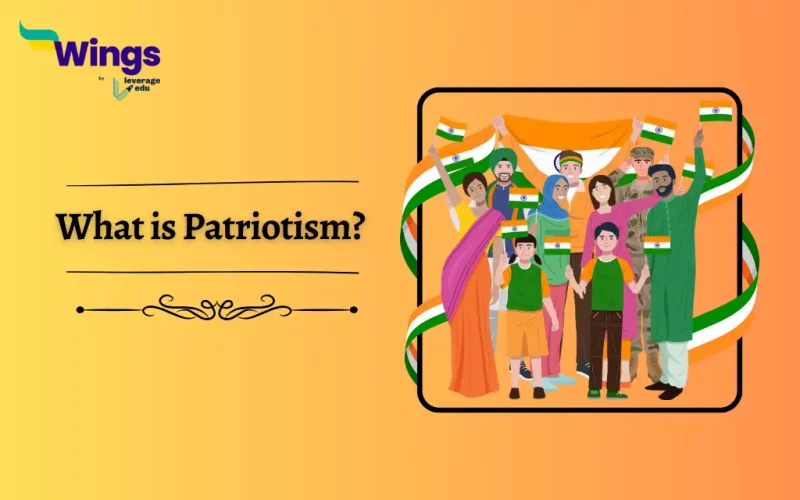Patriotism is simply having love for your country and the expression of this love is considered patriotic. It often unifies people with the same feeling for their home country but sometimes also becomes a tool of stereotypical gestures. It is a factor of good citizenship but can be exploited politically if starts being seen as an obligation. Let’s explore more details about the nature of patriotism.
Defining Patriotism
The idea of patriotism originated around 2,000 years before nationalism. It originated as an idea of loyalty towards a common land or a land governed by common belief. It is attached to the ideas of law, common good, liberty and a sense of duty towards one’s own country. During the Renaissance, it helped people fight against corruption and tyranny by focusing on common liberty even in their private affairs.
This collective good comes from a shared culture, land or traditions and is often diluted with pride. With that, this love for a nation typically turns into a willingness to sacrifice one’s own good or even life for the protection of that common idea. This has helped in the unification of people on common grounds but has its own pros and cons. For example, the founders of America were warriors with a common love for their country.
Today, patriotism is the feeling of love, pride, devotion, and attachment towards one’s nation. This patriotic attachment also connects the various citizens of a particular country.
Also Read: What is a National Emergency?
What are the Features of Patriotism?
Additionally, it is also important to see how is it followed or practised in the modern context. Here are examples of a few acts that are considered patriotic towards your homeland:
- Voting to choose your representative in a democracy.
- Performing jury duties in a case.
- Community service acts.
- Understanding and practising the fundamental rights and duties.
- Paying taxes in your home country.
- Being a lawful citizen.
Also Read: Unicameral and Bicameral Legislature: Meaning, Characteristics, Differences
What is the Importance of Patriotism?
Patriotism has an important part in encouraging unity, resilience, and national identity. It instils a sense of belonging and pride among citizens, hence strengthening social cohesion and solidarity.
- Additionally, patriotism motivates people to contribute positively to their communities and country, whether through civic engagement, volunteering, or upholding moral values.
- It also inspires sacrifice and dedication in times of adversity, driving collective efforts towards overcoming challenges and achieving common goals.
- Furthermore, patriotism serves as a unifying force, transcending differences and promoting harmony among diverse groups.
- Ultimately, it is essential for the overall well-being, progress, and stability of a nation.
Also Read: Important Notes on the Impeachment Process
How is Patriotism Different from Nationalism?
Patriotism majorly differs from nationalism on the grounds that it is the act of love for your country but nationalism believes in the supremacy of one’s country. It dwells on positive values of freedom, justice, and equality whereas, nationalism is a more competitive spirit and often instigates distrust and disregard for the other countries becoming a rival against globalism.
What are the Advantages of Patriotism?
The advantages are:
- It unifies and brings people together.
- Helps a community endure common challenges.
- It helps people work towards a common goal of the collective good.
- Patriotism gives people a personal connection to their homeland helping maintain the law and order within.
What are the Disadvantages of Patriotism?
The disadvantages are:
- It can be misused to turn people into conflict within themselves.
- The country might lose its fundamental values if a majority of its people take patriotism wrongly.
- It sabotages the spirit of globalism making people concerned about the good of a single area rather than humanity or the world.
- It can often become the basis of war.
Also Read: What is Modern Politics?
What are the Political Implications of Patriotism?
Political theorists believe that patriotism can serve as an antidote to nationalism and possess ethos for a well-ordered polity. They also came up with ‘new patriotism’ which oversees the common ancestry, language and culture to incorporate more universal values of love and loyalty towards a political community. It ensures a good use of the political rights of the citizens of a nation.
FAQs
Patriotism in India is a deep sense of love, pride, and devotion towards one’s country. In India, patriotism often manifests through expressions of national pride, such as hoisting the national flag, singing the national anthem, participating in national events and celebrations, and contributing to the country’s development in various ways.
The 3 core values of patriotism are love, pride and sacrifice.
In simple terms, being patriotic means having a strong love and loyalty for your country. It involves feeling proud of your country’s history, culture, and achievements, and being willing to support and defend it when needed.
Patriotism for students involves instilling a sense of love, respect, and responsibility towards their country.
Related Blogs
This was a brief discussion on patriotism. Patriotism is a widely discussed topic among the community of thinkers to date. There are also many types of patriotism that people have come up with to protect it from the shadow of nationalism. Moreover, you may even read more blogs and empower yourself with knowledge regarding Civics and Polity!
 One app for all your study abroad needs
One app for all your study abroad needs













